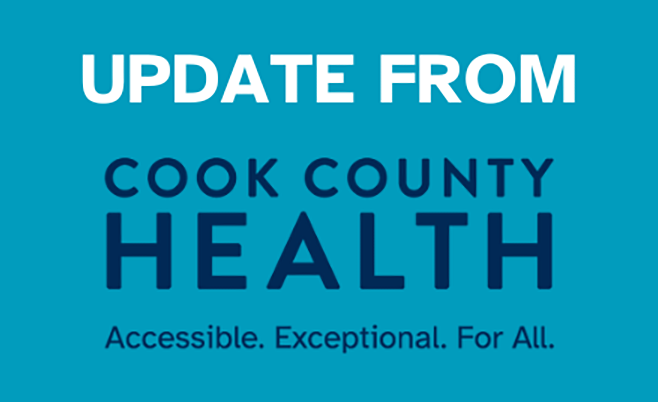The FDA-approved drug called PrEP can drastically reduce someone’s risk of getting HIV-by as much as 92 percent, according to the Centers for Disease Control and Prevention.
But one of the biggest barriers to PrEP, or Pre-Exposure Prophylaxis, being effective in preventing HIV transmission isn’t the drug itself. It’s ensuring that people who are at high risk of contracting the virus take the drug as instructed, especially young people.
That’s why a new “smart PrEP” pill could potentially be a breakthrough in HIV prevention. It can tell in real-time when or if a person has taken their PrEP pill that day.
Researchers at Cook County Health are currently recruiting participants in a study to see if, as expected, the smart PrEP pill makes it easier for young people to keep track of their PrEP dosage each day and in the process, significantly reduce their chances of getting HIV/AIDS.
“Adherence–by that I mean, taking PrEP daily as instructed–is so critical. We know if people take at least 4 pills of PrEP a week, they will achieve a high level of HIV protection. But the No. 1 factor or determinant of whether one is adherent is age,” said Jennifer Brothers, Project Director at CCH’ Hektoen Institute of Medicine and one of the lead researchers in the smart PrEP study. “So if we can provide a tool that provides real-time patient support with real-time adherence monitoring for adolescents, who are least adherent, we could make great strides in HIV prevention.”
How does the smart PrEP work?
“The pill Truvada–the only PrEP drug approved by the Food and Drug Administration–has a sensor tablet encapsulated over it, so that when the pill is swallowed, the sensor tablet comes in contact with gastric fluid in the stomach and creates an electrical signal,” explained Dr. Gregory Huhn, CCH’ Associate Professor of Infectious Diseases and principal investigator of the trial. “The electrical signal is less than the frequency of a heartbeat, so nobody is going to feel it. But it transmits a signal in real-time that the pill has been ingested.”
By having a record of when the pill has been taken that goes to both the patient and his or her doctors or providers, the providers can reach out to patients who haven’t been taking the pills as directed and find out if there are any issues they can help resolve-like medication side effects a patient might be having or that they’ve run out of medication, Brothers said.
PrEP is supposed to be taken once a day.
Yet, many studies have shown that patients often fail to meet that guideline, particularly among people younger than 24 years of age.
For instance, a 2017 study looking at 200 young gay and bisexual men aged 18-22 in a dozen U.S. cities found that only 56 percent of the participants were taking at least 4 doses of Truvada at week 4 of the study. And by the end of the 48-week study, that number fell further-to just 34 percent taking the drug as directed.
Reasons for that low adherence rate are many, Brothers and Huhn said.
“Anyone who’s ever taken medication on a regular basis-whether you take a vitamin or you’re taking an antibiotic-knows that adherence can be difficult in our busy lives. You sometimes find yourself asking, ‘Did I take my medication for the day,'” Brothers said. “And then you are faced with decision of taking a possible second-dose, not knowing you have already taken a dose, or withholding medication, because you think you’ve already taken a dose. Neither is good.”
That’s what makes the smart PrEP technology so novel and exciting, Brothers said.
“Patients will now be able to make informed decisions regarding their medication adherence and ultimately their sexual behavior based on real time monitoring. No more second guessing,” she said.
Another factor that can contribute to low adherence is that PrEP pills are taken before a person actually contracts human immunodeficiency virus (HIV) or acquired immune deficiency syndrome (AIDS).
“So these are young, healthy people that are just living their lives. They don’t necessarily want to be constantly reminded whether they’re taking their PrEP daily or not,” Dr. Huhn said.
But Dr. Huhn expects the technology behind smart PrEP pills to be more appealing to people, because the patch that people need to wear, in order for the pill’s sensor to transmit findings, also takes readings of their heart rates, sleep patterns and other fitness measures.
In that sense, “It’s not just about emphasizing HIV protection, it’s also about emphasizing health and well-being,” he said.
The FDA-approved smart pill technology, called Proteus Discover, was made by California-based Proteus Digital Health. Though the company has made other smart pills, such as for cardiovascular disease and psychiatric illness, “this is the first time this technology has been used to prevent a disease,” Dr. Huhn said.
The study is sponsored by the National Institutes of Health and the National Institute of Allergy and Infectious Disease.
The researchers are seeking approximately 100 HIV-negative young men-between 16 and 24 years old-who have sex with men and are interested in PrEP to take part in the study. Young men who have sex with men (YMSM), particularly in the African-American and Latino communities, have one of the highest rates of getting HIV infection in the United States, the CDC says. Researchers will be recruiting people over the next year.
Those chosen to participate will be part of a randomized control study that compares PrEP adherence over 24 weeks with or without smart pills.
For people interested in enrolling in the study, please contact Kody Keckler at 312- 572-4716.

